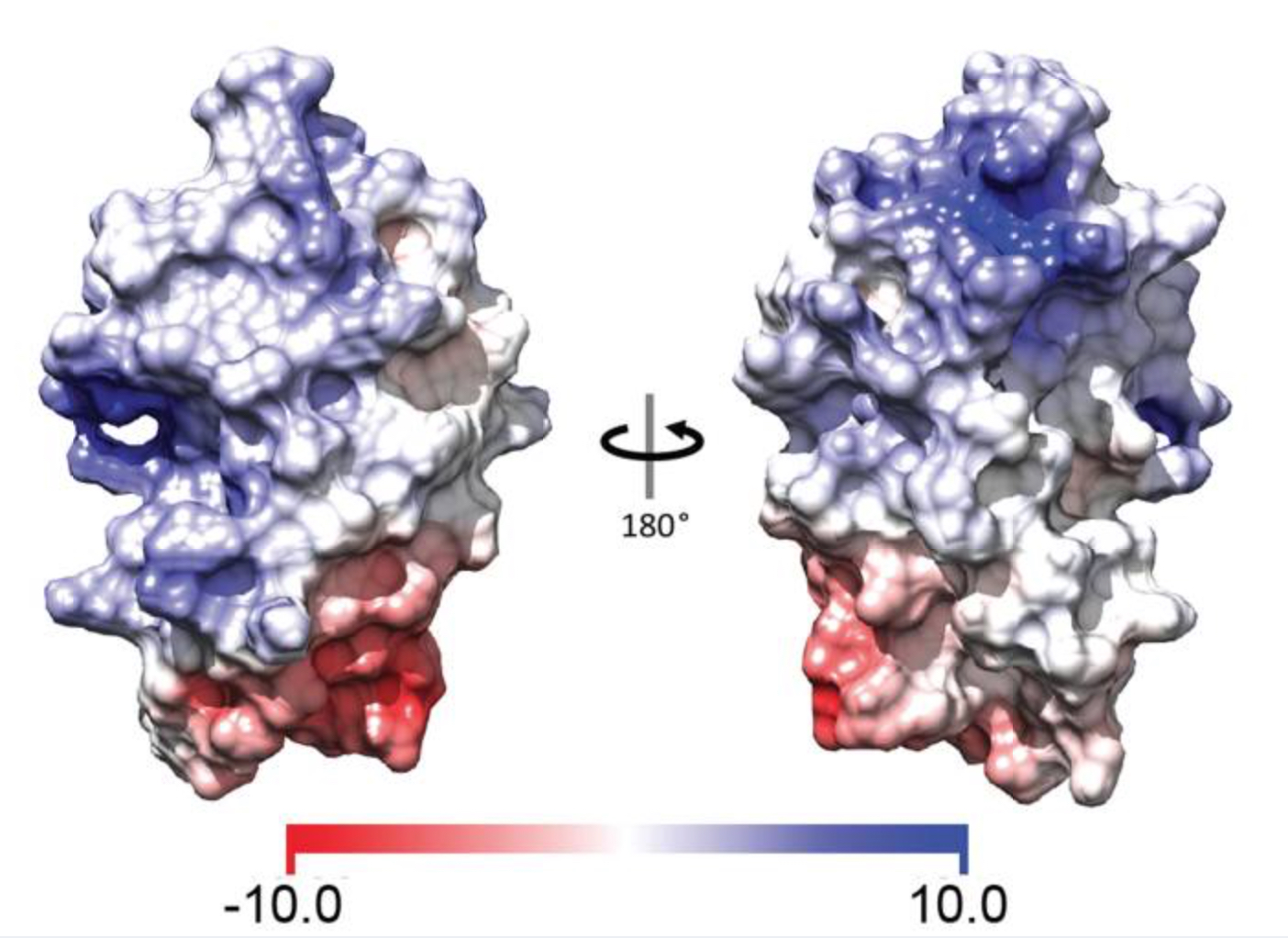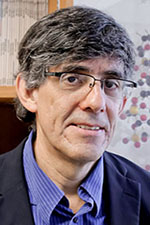May 7, 2019 | Jola Glotzer
Solving a part of CRISPR structure
Part of the CRISPR complex structure resolved with help of Gatan 2, a direct electron detector purchased by NU with CBC funds
Congratulations to Alfonso Mondragón, NU, for his recent publication in Nucleic Acids Research, titled “Structural organization of a Type III-A CRISPR effector subcomplex determined by X-ray crystallography and cryo-EM.” The authors acknowledge CBC support through a CBC Infrastructure Award (2014), which allowed NU to acquire an expensive next-generation electron detector – Gatan 2 – for its $5 million cryo-electron microscope (cryoEM) core facility. Alfonso Mondragón and Jay Welsh, NU, were co-PIs on the CBC grant. Mondragón has several additional ties to the CBC. He received two CBC Catalyst Awards (2006 and 2016), CBC Postdoctoral Research Award (2015) and a CBC Lever Award Pilot Project (2014, renewed for 2015). He also served as a chairman on the 16th Annual CBC Symposium (2018) and was a member of the CBC Catalyst Board (2007-2011). CBC is proud to have provided support to Mondragón’s research and is grateful for his time and dedication while working with the CBC on its programs.
Publication attributed to CBC funding*:
Dorsey BW, Huang L, Mondragón A. Structural organization of a Type III-A CRISPR effector subcomplex determined by X-ray crystallography and cryo-EM. Nucleic Acids Res. 2019 Apr 23;47(7):3765-3783. (PubMed)
ABSTRACT

Molecular architecture of S. epidermidis Csm2. (Source: Nucleic Acids Res.)
Clustered regularly interspaced short palindromic repeats (CRISPR) and their associated Cas proteins provide an immune-like response in many prokaryotes against extraneous nucleic acids. CRISPR–Cas systems are classified into different classes and types. Class 1 CRISPR–Cas systems form multi-protein effector complexes that includes a guide RNA (crRNA) used to identify the target for destruction. Here we present crystal structures of Staphylococcus epidermidis Type III-A CRISPR subunits Csm2 and Csm3 and a 5.2 Å resolution single-particle cryo-electron microscopy (cryo-EM) reconstruction of an in vivo assembled effector subcomplex including the crRNA. The structures help to clarify the quaternary architecture of Type III-A effector complexes, and provide details on crRNA binding, target RNA binding and cleavage, and intermolecular interactions essential for effector complex assembly. The structures allow a better understanding of the organization of Type III-A CRISPR effector complexes as well as highlighting the overall similarities and differences with other Class 1 effector complexes.
ACKNOWLEDGMENTS
National Institutes of Health (NIH) [R35 GM118108 to A.M.]; LS-CAT/Sector 21 at the Advanced Photon Source, Argonne National Laboratory was supported by the Michigan Economic Development Corporation and the Michigan Technology Tri-Corridor. Support from the R.H. Lurie Comprehensive Cancer Center of Northwestern University to the Structural Biology, Keck Biophysics, and High Throughput Analysis Facilities is acknowledged. The Gatan K2 DDE at Northwestern University was purchased with funds provided by the Chicago Biomedical Consortium with support from the Searle Funds at The Chicago Community Trust. The GE Healthcare Typhoon 9400 Fluorimager at Northwestern University was purchased with funds provided by award [S10RR027842] from the National Center for Research Resources. Funding for open access charge: National Institutes of Health [R35 GM118108].
Featured CBC Community member(s):
Alfonso Mondragón, NU
- 16th Annual CBC Symposium (2018):
▸ A New Age of Structural Biology: Structure Meets Dynamics
Alfonso Mondragón — Symposium Organizer (Chairman) - CBC Catalyst Award (2016):
▸ Probing the Kinetics of tRNA Recognition by T-box Riboswitch at the Single-molecule Level
PIs: Alfonso Mondragón (NU) and Jingyi Fei (UChicago) - CBC Postdoctoral Research Award (2015):
▸ Elucidating the Molecular Mechanism of a Large RNA Switch Using Cryo-Electron Microscopy
PIs: Bhaskar Chetnani (postdoc) and Alfonso Mondragón (NU) - CBC Lever Award Pilot Project (2014, renewed for 2015):
▸ Lever-CSAP Pilot Project: Production of High Affinity sABs against RNA and RNP Targets: Library Development and Chaperone Assisted Crystallography
Lever Award PIs: Anthony Kossiakoff (UChicago), Geoffrey Greene (UChicago), Brian Kay (UIC) and Jason Brickner (NU)
Pilot Project PI: Alfonso Mondragón (NU) - *CBC Infrastructure Award (2014):
▸ Infrastructure Initiative: Direct Electron Detector for the Biological CryoEM
PIs: Alfonso Mondragón and Jay Walsh (NU) - CBC Catalyst Review Board (2007-2011):
▸ Current Membership
Alfonso Mondragón — Board Member - CBC Catalyst Award (2006):
▸ Epigenetics of RNA: a systems approach
PIs: Alfonso Mondragón (NU) and Tao Pan (UChicago)

